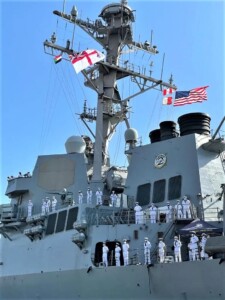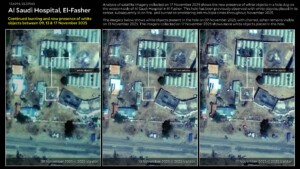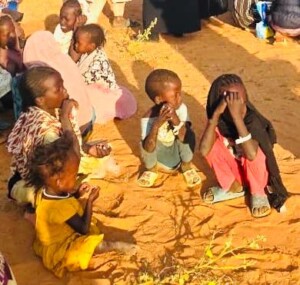‘Self-interest behind DRA conflicts’: Darfur displaced
The recent disputes about the performance of the Darfur Regional Authority (DRA) concerning the implementation of development projects and the Disarmament, Demobilisation, and Reintegration (DDR) programme are not surprising, according to displaced leaders in Darfur.
The coordinator of the Central Darfur camps told Radio Dabanga that conflicts were to be expected “as the DDPD signatories have stolen the will of the people of Darfur.
“They presented themselves as representatives of the Darfuri people for the sake of power and money only. If they really care, why did not they exert efforts to halt the aerial bombardments, the killing and raping, and the torching of villages?”
The recent disputes about the performance of the Darfur Regional Authority (DRA) concerning the implementation of development projects and the Disarmament, Demobilisation, and Reintegration (DDR) programme are not surprising, according to displaced leaders in Darfur.
Omda Ahmed Ateem, coordinator of the North Darfur camps for the displaced commented on the disputes by saying that the DRA is “nothing but a copy of the Sudanese government”.
He told Radio Dabanga that the internal conflicts “will not affect the displaced people because they have nothing to do with the stillborn Doha peace accord of 2011. Instead of blaming each other, the DRA leaders should exert their efforts to disarm the militiamen in the region, stop the almost daily killings, rapes, and abductions of innocent Darfuris.”
Radio Dabanga reported yesterday about serious allegations of corruption within the DRA leadership. at a press conference in Khartoum on Monday, Bahar Idris Abu Garda, chairman of the Liberation and Justice Party, accused DRA head Dr Tijani Sese of deliberately monopolising all decisions. He called on the people of Darfur to remove Sese as DRA president.
Abu Garda was one of the leaders of the Liberation and Justice Movement, a coalition of 19 breakaway rebel factions that signed the DDPD in Qatar in 2011.
The coordinator of the Central Darfur camps told Radio Dabanga that conflicts were to be expected “as the signatories of the Doha Document for Peace in Darfur have stolen the will of the people of Darfur.
“They presented themselves as representatives of the Darfuri people for the sake of power and money only. If they really care, why did not they exert efforts to halt the aerial bombardments, the killing and raping, and the torching of villages?”
He said that the Sudanese government is using the DRA “to eliminate the effects of the war by establishing some voluntary return villages, which have been taken by new settlers, and attempting to dismantle the camps for the displaced to force the people to return to their areas of origin which are far from secure”.
‘Self-interest’
Saleh Eisa, the secretary-general of Kalma camp near Nyala, capital of South Darfur, also described the surfacing conflicts about the DRA as self-interest.
“If their differences would revolve about the number of villages, schools, or other development projects to be established, this would have been logical. However, we are not concerned about their personal conflicts.”
Eisa called on the donors to “strictly follow up the implementation of the so-called early recovery projects, for the sake of the displaced, so that they will not reap a mirage”. He further appealed to the international community to focus on a comprehensive peace process “in its future plans”.
The coordinator of Sirba camps in West Darfur commented that “if the allegations of financial corruption within the DRA are true, then all members and former members of the DRA are to be blamed”. He added that since the signing of the DDPD in 2011, “no official has ever visited any of the camps for the displaced in Sirba locality”.











 and then
and then